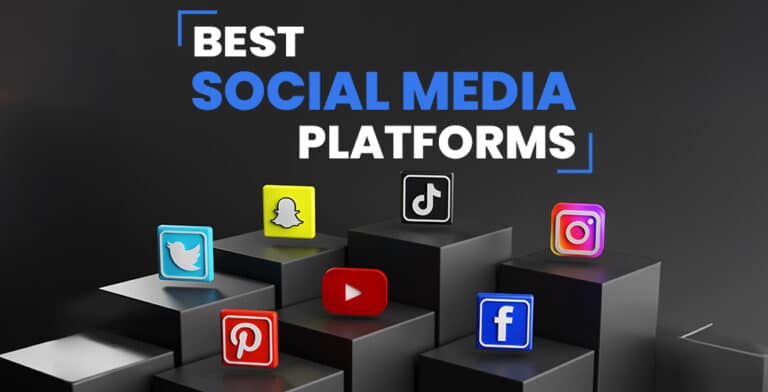Personal selling involves direct interaction between salespeople and potential customers. It relies on building relationships and tailoring pitches to influence buyers. Social media has dramatically impacted this process by providing new tools for connecting with and understanding customers.
Platforms like Facebook and Twitter offer expanded reach and precise targeting capabilities. Their analytics also provide valuable customer insights.
Overall, social media has transformed personal selling by enhancing businesses’ ability to build trust, promote their brand, and leverage data to optimize their efforts. In today’s content, we will try to look into how social media has affected key aspects of personal selling.
What is Personal Selling?
Personal selling involves direct, face-to-face interaction between a salesperson and a prospective buyer. The goal is to persuade the prospect to purchase the product or service being promoted.
Unlike mass advertising, personal selling allows for two-way communication between the salesperson and prospect. This enables the salesperson to build rapport, address objections, and tailor their pitch based on the prospect’s specific needs and interests.
Effective personal selling requires strong communication skills – verbal, non-verbal, listening, and presentation. Salespeople must be adept at creating customized sales presentations, responding to queries, overcoming objections, and negotiating deals.
Building relationships and trust is also crucial. Salespeople aim to become trusted advisors who understand the prospect’s needs and provide solutions. Customer insights help salespeople personalize their approach.
Personal selling plays a key role in the marketing mix for big-ticket or complex B2B products that require relationship-building. It is also used for new product launches to educate the market.
Personal Selling Scenario Before Social Media
Before the rise of social media, personal selling was much more limited in scope and scale. Without digital platforms, salespeople relied entirely on in-person and phone interactions to connect with prospects.
The reach of sales teams was restricted to their immediate geographical territories. Expanding to new markets was challenging without today’s digital infrastructure. Salespeople also lacked access to crucial customer insights beyond observable demographics.
Communication was solely through face-to-face meetings, phone calls, emails, and mail. This made it difficult to establish ongoing dialogue and nurture leads over time.
Building relationships and trust was also slower without social engagement channels. Prospects had limited ways to interact with or learn about the brand beyond the salesperson.
Salespeople couldn’t leverage data analytics on prospects’ interests and behaviors to inform their pitches. Targeting and segmentation capabilities were basic.
The lack of digital tools for organizing leads, tracking interactions, and sharing content also made sales processes less efficient. Information sharing relied on printed brochures and in-person presentations.
While traditional legwork remains vital today, social media has enabled salespeople to be far more targeted, informed, and efficient. By digitally engaging and tracking prospects, they can nurture relationships beyond in-person meetings alone. Social media expanded possibilities for connecting with customers.
How Has Social Media Changed Personal Selling?
Social media has dramatically transformed personal selling in numerous ways. The rise of platforms like Facebook and LinkedIn has provided new avenues for brands to connect with prospects and customers.
Here’s an overview of key ways social media has changed personal selling:
Expanded Reach
Social media platforms like Facebook and LinkedIn enable brands to connect with prospects and customers across geographical boundaries. Whereas traditional personal selling was limited by physical location, social media provides global reach and exposure. This significantly expands the accessible target audience pool for brands.
Enhanced Targeting
The sophisticated targeting capabilities offered by social platforms allow brands to zero in on their ideal demographics, interests, behaviors, and more. Advanced segmentation helps brands deliver highly customized messaging and offers tailored to individuals exhibiting the strongest potential to convert.

Relationship Building
Interaction features like messaging and commenting on social media facilitate ongoing dialogue between brands and consumers. This two-way engagement helps provide personalized support and build rapport. The relationships and trust cultivated on social channels make prospects more receptive to brand outreach.
Customer Insights
The analytics and data capabilities of social platforms offer deep insights into audience preferences and behaviors. Monitoring metrics helps brands understand customers better and predict future needs. These insights enable more informed, relevant, and effective personal selling strategies.
Brand Building
User-generated content like reviews and testimonials help boost brand visibility and trust on social channels. Influencer marketing also expands reach and awareness. This social proof and exposure help drive credibility and conversions.
Sales Productivity
AI chatbots and automated tools help handle common sales tasks on social platforms, saving human agents’ time. This allows salespeople to focus on high-value activities like complex negotiations and closing deals, thereby boosting productivity.
New Engagement Avenues
Emerging social media features like live audio enable real-time interactions with prospects at scale. Salespeople can leverage these innovative avenues to engage customers in new, meaningful ways that drive sales.
Ongoing Learning
With the rapidly evolving social media landscape, sales teams must constantly educate themselves on new platforms, features, and best practices. Staying updated is crucial for identifying the latest trends and opportunities to integrate into sales strategies.

Personal selling is no longer limited to in-person interactions. By strategically leveraging social media tools, brands can expand their reach, gather data-driven insights, build relationships, and drive sales productivity.
However, it requires specialized expertise and resources. Overall, social media has opened up new opportunities to transform and modernize personal selling.
Challenges and Limitations of Using Social Media
While social media delivers significant benefits for personal selling, it also comes with challenges and limitations that businesses must address. Mastering these platforms requires specialized skills and resources.
Too Many Platforms Can Be Overwhelming
Juggling multiple social media platforms can become overwhelming for sales teams, especially smaller businesses with limited bandwidth.
Determining where to focus efforts and manage profiles effectively across platforms like Facebook, Instagram, LinkedIn, and Twitter requires strategic planning. Lacking proper expertise in leveraging these tools can result in fragmented efforts and wasted time.
Privacy Concerns and Negative Feedback
Customers have growing concerns about data privacy and security issues with social media. Platforms face greater scrutiny around how they gather and handle user data. Negative feedback and reputation management are also challenges.
Unhappy customers can easily post complaints and negative reviews publicly, damaging a brand’s reputation. Proactively monitoring, responding, and containing criticism requires PR skills.
Need for Specialized Skills and Resources
Mastering the ever-evolving social media landscape requires dedicated personnel with specialized knowledge and skills in areas like data analytics, digital marketing, and more. Many small businesses struggle to hire this expertise or outsource these capabilities.
Integrating AI and predictive analytics into selling strategies also demands data science and technical capabilities that are challenging to develop internally. Substantial resources are required to build effective social selling.
The Future of Social Media and Personal Selling
As social media platforms and technologies continue evolving rapidly, the future looks promising for advancing personal selling capabilities. Businesses must stay updated on emerging trends and innovations to maximize their social selling efforts.
The social media landscape is constantly changing. Brands must adapt their strategies to leverage new opportunities and remain competitive. Key future trends include:
Integrating AI and Chatbots
- AI and chatbots are being integrated into personal selling to automate interactions and provide personalized recommendations.
- AI-powered chatbots can handle common sales inquiries to free up human agents’ time for complex sales tasks.
- They facilitate 24/7 customer support and real-time interactions at scale across platforms.
Leveraging Predictive Analytics
- Analyzing social media data helps identify customer trends and predict future needs and behaviors.
- These insights allow brands to tailor offers and recommendations proactively.
- Predictive analytics enables more targeted and timely outreach to prospects exhibiting buying signals.
- This makes selling efforts more efficient and effective.
Emerging Social Media Platforms and Features
- New platforms aimed at professionals like LinkedIn Stories may impact personal selling.
- Emerging features like live audio rooms on social platforms also provide new engagement avenues.
- Businesses must evolve strategies to leverage these emerging tools and opportunities.
Staying updated on the latest innovations and trends will be crucial for brands to maximize personal selling through social media.
Wrapping Up
Social media has had a transformative impact on personal selling and how businesses connect with customers. Key takeaways include how social platforms have enabled extended reach, precise targeting, stronger customer relationships, and data-driven insights to optimize sales approaches.
However, challenges around brand reputation, data privacy, and the need for specialized skills must also be managed.
Overall, leveraging social media tools strategically presents significant new opportunities for businesses to modernize and enhance their personal selling effectiveness. The future looks bright for integrating emerging technologies like AI and predictive analytics to further advance personalized selling in the digital age.




